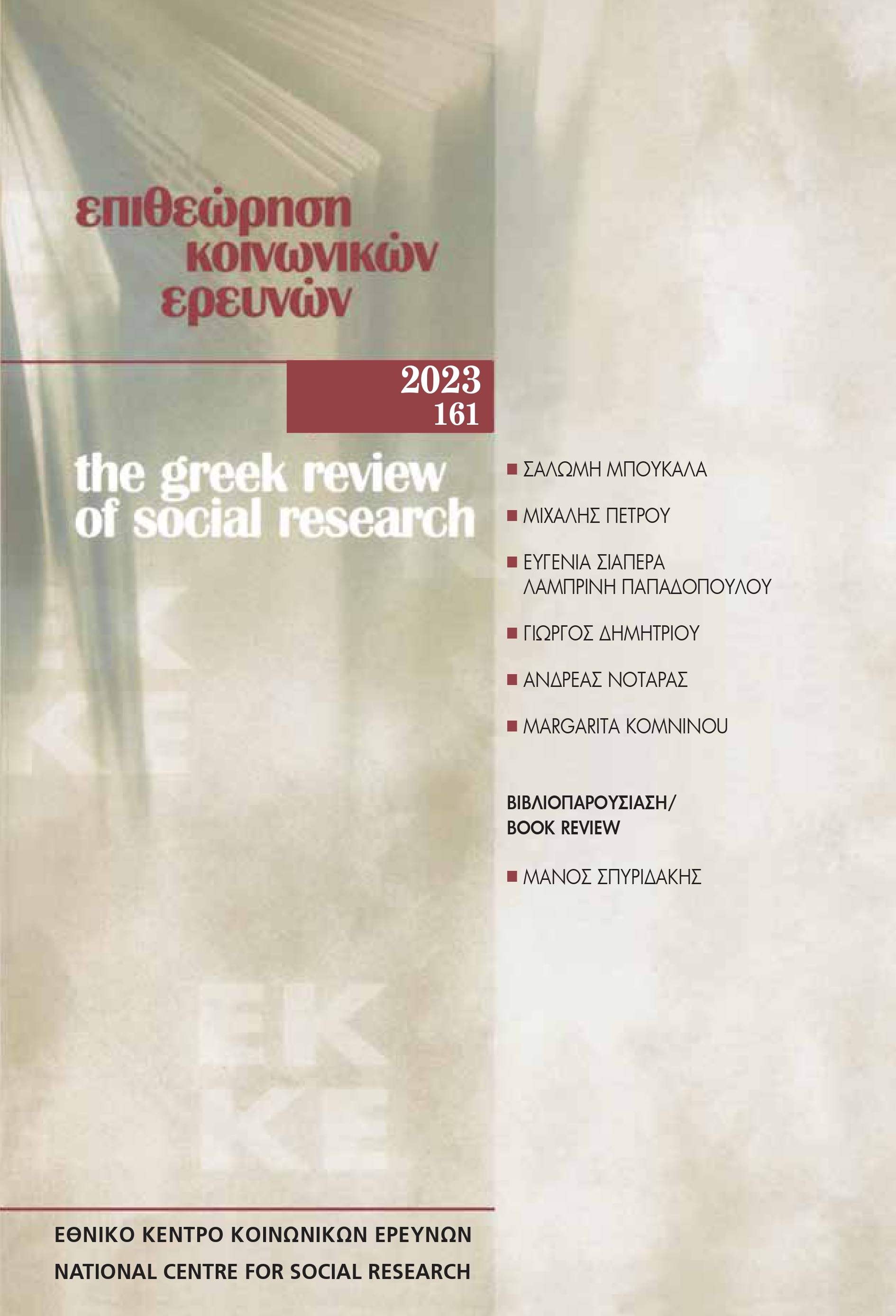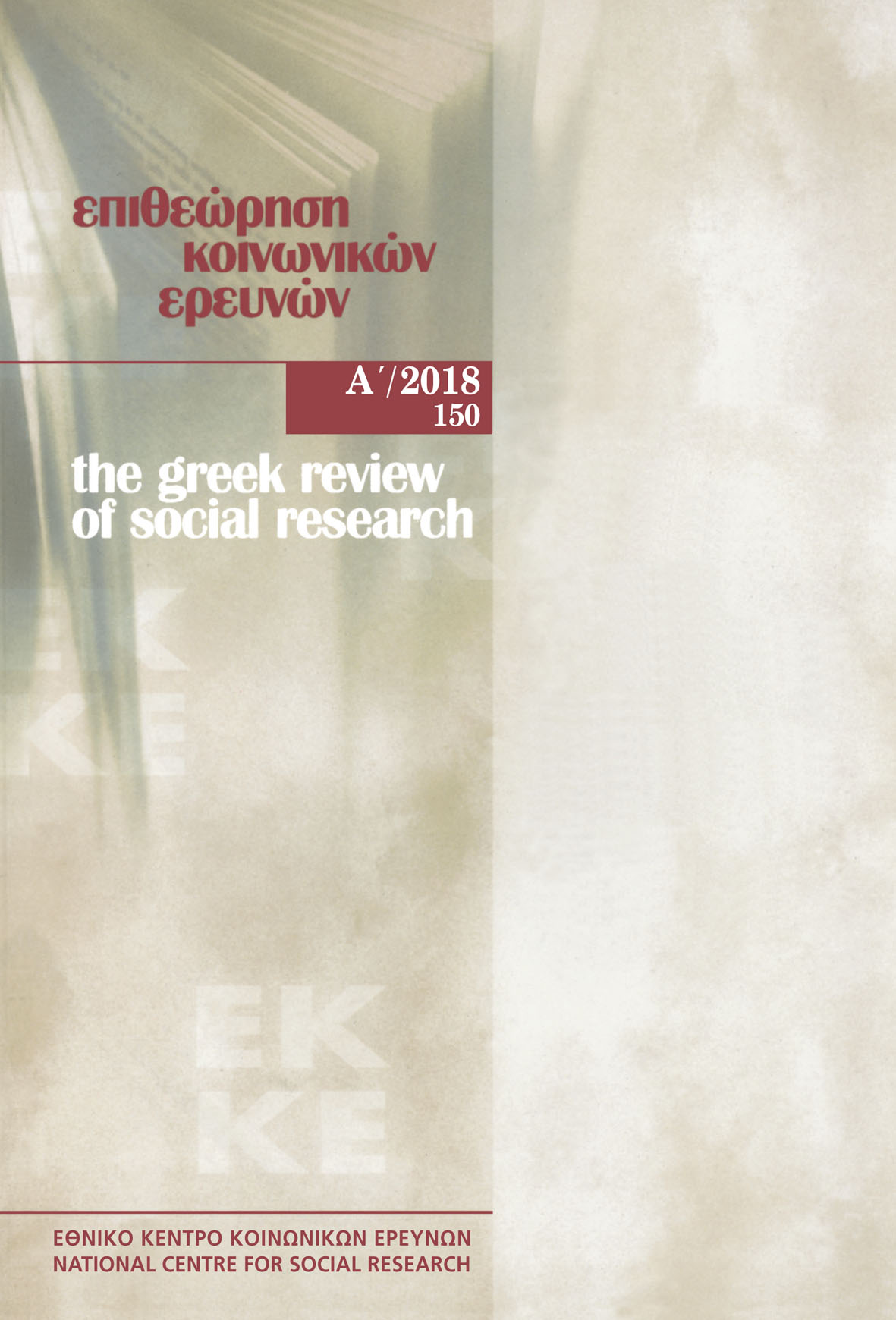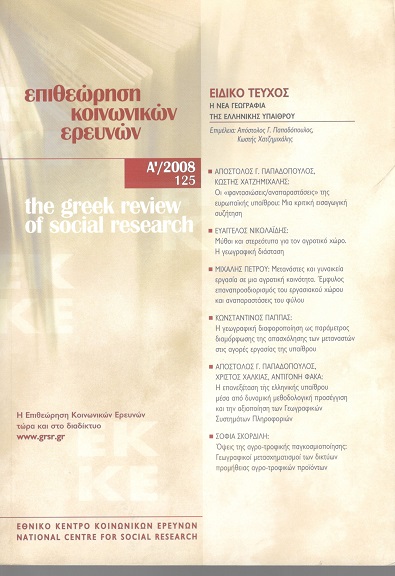Διερευνώντας τη σχέση του ακροδεξιού διαδικτυακού πολιτισμικού και πολιτικού ακτιβισμού με τον φυσικό χώρο. Παραδείγματα από ένα νησί του Βορειοανατολικού Αιγαίου

Περίληψη
Το παρόν άρθρο αποσκοπεί στη διερεύνηση της σχέσης μεταξύ της ακροδεξιάς πολιτικής κουλτούρας και ιδεολογίας, όπως αναπτύσσεται στα μέσα κοινωνικής δικτύωσης, και της κοινωνικής τους επιρροής στoν δημόσιo χώρο. Βασιζόμενο στα αποτελέσματα έρευνας πεδίου που πραγματοποιήθηκε στο νησί της Λέσβου κατά το φθινόπωρο του 2021, επιχειρεί να αποσαφηνίσει τον τρόπο με τον οποίο ο ακροδεξιός πολιτικός και πολιτισμικός ακτιβισμός, μέσω των ηλεκτρονικών μέσων κοινωνικής δικτύωσης και ενημέρωσης συνομιλεί, αλληλεπιδρά και τροφοδοτεί τον αντίστοιχο ακροδεξιό ακτιβισμό στο φυσικό χώρο.
Λεπτομέρειες άρθρου
- Πώς να δημιουργήσετε Αναφορές
-
Πέτρου Μ. (2023). Διερευνώντας τη σχέση του ακροδεξιού διαδικτυακού πολιτισμικού και πολιτικού ακτιβισμού με τον φυσικό χώρο. Παραδείγματα από ένα νησί του Βορειοανατολικού Αιγαίου. Επιθεώρηση Κοινωνικών Ερευνών, 161, 35–72. https://doi.org/10.12681/grsr.35004
- Τεύχος
- 2023: 161
- Ενότητα
- Άρθρα

Αυτή η εργασία είναι αδειοδοτημένη υπό το CC Αναφορά Δημιουργού – Μη Εμπορική Χρήση 4.0.
Οι συγγραφείς των άρθρων που δημοσιεύονται στην Επιθεώρηση Κοινωνικών Ερευνών διατηρούν τα δικαιώματα πνευματικής ιδιοκτησίας επί των άρθρων τους, δίνοντας στο περιοδικό το δικαίωμα της πρώτης δημοσίευσης. Άρθρα που δημοσιεύονται στην Επιθεώρηση Κοινωνικών Ερευνών διατίθενται με άδεια Creative Commons 4.0 και σύμφωνα με την άδεια μπορούν να χρησιμοποιούνται ελεύθερα, με αναφορά στο/στη συγγραφέα και στην πρώτη δημοσίευση για μη κερδοσκοπικούς σκοπούς.
Το Εθνικό Κέντρο Κοινωνικών Ερευνών διατηρεί το δικαίωμα να δημοσιεύει, να αναπαραγάγει, να παρουσιάζει στο κοινό, να διανέμει και χρησιμοποιεί άρθρα που δημοσιεύονται στην Επιθεώρηση Κοινωνικών Ερευνών σε οποιοδήποτε μέσο και μορφή είτε μεμονωμένα είτε ως μέρη συλλογικών έργων, για όλο τον χρόνο διάρκειας προστασίας της πνευματικής ιδιοκτησίας και για όλες τις χώρες του κόσμου. Αυτό περιλαμβάνει ενδεικτικά και όχι αποκλειστικά το δικαίωμα δημοσίευσης των άρθρων σε τεύχη της Επιθεώρησης Κοινωνικών Ερευνών, αναπαραγωγής και διανομής μεμονωμένων αντιγράφων των άρθρων, αναπαραγωγής ολόκληρων των άρθρων σε άλλη έκδοση του Εθνικού Κέντρου Κοινωνικών Ερευνών, καθώς και αναπαραγωγής και διανομής των άρθρων ή περίληψης αυτών με χρήση πληροφορικού συστήματος αποθετηρίου.





